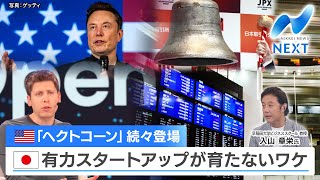The Ministry of Economy, Trade and Industry will revise its investment contract guidelines by the end of September to explicitly allow mergers and acquisitions (M&A) as an exit option alongside initial public offerings (IPOs). This marks a significant shift from the traditional approach in Japan, where venture capital firms have primarily required startups to pursue IPOs, shaping the country’s startup ecosystem.
Akiyo Iriyama, a professor at Waseda University specializing in corporate strategy, explained that while startups worldwide generally exit through either IPOs or M&A, Japan has long relied almost exclusively on IPOs. In contrast, more than 90 percent of U.S. startups are acquired through M&A, with IPOs accounting for less than 10 percent.
As a result, Japanese startups often go public at much smaller valuations—sometimes as low as a few billion yen in market capitalization—long before reaching unicorn scale. This partly explains why Japan has so few unicorns compared with the U.S., where startups often raise multiple funding rounds and delay IPOs until valuations reach 1 trillion yen or more.
One structural reason for this difference is the relative ease of listing in Japan. The Tokyo Stock Exchange has historically maintained lenient conditions, allowing relatively young startups with modest valuations to go public. While this system has provided early returns to founders and investors, it has also led to the phenomenon known as “IPO goal”—startups going public early and then stalling in growth.
Many founders, after securing wealth through IPOs, lose the incentive to aggressively scale their companies. Iriyama stressed that while IPOs are not inherently negative—having produced visible role models for aspiring entrepreneurs—Japan needs more pathways to sustain growth beyond early listing. If listing requirements remain too easy, startups tend to stop growing at an early stage. He argued for stricter standards and more diversified exit strategies.
Another factor influencing this dynamic is the scale of funding. Japanese venture capital tends to offer smaller amounts with shorter investment horizons, often pushing startups to list quickly. By contrast, in the U.S., startups may raise round after round—sometimes even through Series H—without listing.
To compete globally, Japanese startups require not only longer-term domestic capital but also greater inflows of overseas investment. Iriyama expressed cautious optimism, noting that foreign venture capital funds have previously invested in Japan at a much larger scale, often with one extra zero compared with domestic firms. Such capital could enable the growth of deep-tech companies requiring years of development.
However, he also warned that overseas funds can be quick to pull back when markets turn. “Foreign investors can bring in large amounts of capital, but their exit can be just as fast,” he said, recalling a period when international funds rapidly withdrew from Japan.
As the government pushes reforms and venture capital practices evolve, the central question remains whether Japan can foster startups that not only go public but also scale into the kind of global giants increasingly defining the modern economy.
https://newsonjapan.com/article/147018.php
